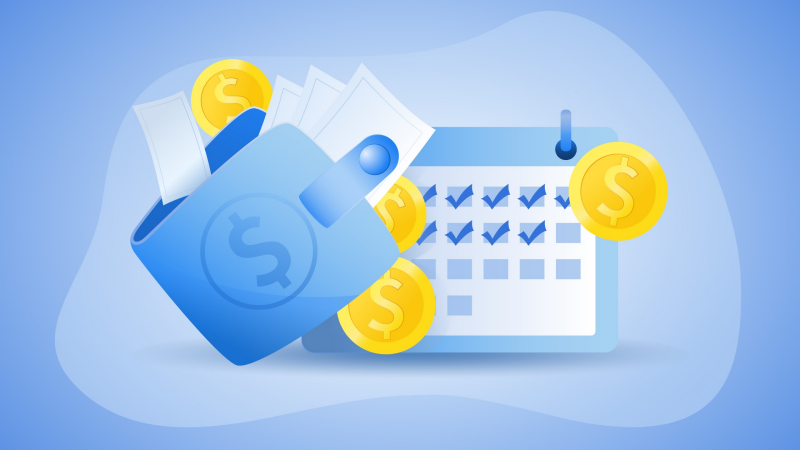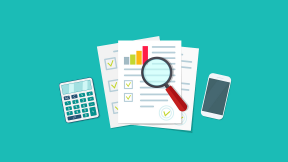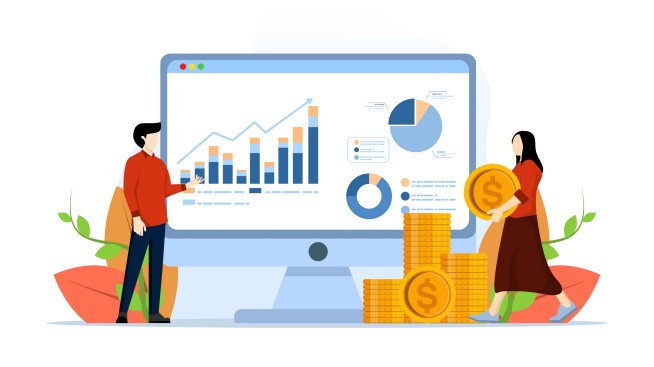How long does it take to get a credit score?

You've filled out all the paperwork to apply for your first credit card. Next, let’s suppose that you get the official approval, and then your new shiny card arrives in the mail. You purchase a couple items and then patiently wait for your credit score to be established. However, sometimes this takes longer than you might think, and to many who are new to credit the whole process can seem like a mystery.
The very concept of how credit scores are determined can seem pretty abstract—after all, many factors are involved. So, it makes sense to wonder—how long does it take to generate it, and why does it feel like it takes so long to see a change?
In this article, you will learn:
- How to establish credit for the first time
- How long it takes for your credit score to update
- Different ways to improve your credit score
- How long it takes to improve your credit score
How to establish credit for the first time
Taking out your first credit card is certainly one way to help jumpstart your financial journey (more on that later). However, it isn't your only option. Let's explore the different ways you can establish credit for the first time below.
Authorized user
You can build credit by being an authorized user on another person's account. This is one great way to help establish your credit because you don't have to be 18, which is generally the age you must be to take out your first credit card.
For example, let's say your parents allowed you to be an authorized user of their credit card at age 16. While your parents are still responsible for the payments, the financial activity with the card—such as your parents making on-time monthly payments—can help you to build your credit history and establish a credit score if your credit card balances are paid on time. However, note that not all lenders report authorized user information to the bureaus.
Taking out a line of credit
If you don't have a credit score or credit history, you may still be able to take out a line of credit, such as a loan or a credit card. While you usually have to be at least 18 years old to do this, establishing your first line of credit is a great way to begin building your credit history and receive a credit score down the line.
Joint accounts
Additionally, your credit may be established for the first time if you are a part of a joint account, such as an auto loan where a parent, friend or family member is on the account with you. Both of you are responsible for making payments towards this loan, and you have to be at least 18 years old to take out this type of credit. Like other loans and lines of credit, it could take a few months before you see your first credit score.
Keep in mind that as a co-borrower—or joint applicant—shares ownership of the loan and assumes responsibility for payments from the start. On the other hand, a co-signer is only liable for the loan if the primary borrower fails to make payments.
Why does it take so long to get your first credit score?
Given there are so many different ways you can first establish credit, you might be wondering—why does it take months before you can get your first credit score?
Because your score captures your financial behavior over time, there needs to be some time before your first credit score can be generated. There are a few reasons why it could take some time. These include, but aren't limited to:
- Credit bureaus need time to set up your file and confirm your identity
- Your lender has to send important information and documentation (such as your Social Security number) to the credit bureaus which could take time
- There are different scoring models (like VantageScore® vs. the FICO® score) that may calculate your score slightly differently, which could result in different time frames
- The buying cycle itself can take some time—from making your purchase to reporting it to the credit card issuer and then reporting the balance of the card to the credit bureaus
A credit score gets developed by your financial behavior over time. Combined, your habits, patterns and decisions go towards generating your score, and this can take a decent amount of time for it to get reflected.
How long does it take for your credit score to update?
Due to the above factors, it could take anywhere from 3–6 months until you've established your first credit score.
Depending on where you get your score, the timing for how long and how frequently your score updates may vary.
However, there are quick ways you can check your credit score. For example, when you enroll in Chase Credit Journey®, a free online tool, you can see your free VantageScore® 3.0 credit score that refreshes every week if you check weekly and every month if you check infrequently. You can see your updated score automatically without it hurting your credit score.
Different ways to help improve your credit score
Your first credit score won't automatically be the highest. However, once you've established a credit score, you can improve it over time. You can do this by:
- Making monthly payments on time
- Lowering your credit utilization ratio
- Taking out different lines of credit to diversify your credit mix
- Consider enrolling in Credit Journey® where you may find useful resources to understand and work towards improving your score
How long does it take to improve your credit score?
Building up good habits (such as the ones listed above) can help you establish a strong credit score over time. Because your score reflects your aggregate financial behaviors, it could be a few months before you start to see your credit score improve.
Additionally, the length of time it takes to improve your score depends on a variety of factors, including, but not limited to:
- What your current credit score is
- How much debt you have remaining
- If you have derogatory remarks on your credit report
In conclusion
Have patience and develop healthy financial habits—you might see your diligent efforts reflected positively in your credit score as you progress on your credit journey. By monitoring your credit score with tools like Credit Journey®, you can learn to stay on top of your credit.



